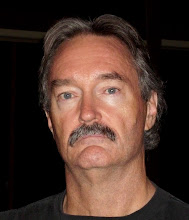In 1975, annual traffic fatalities dropped by 9100 when America was saddled with a national speed limit of 55 mph to address the gas crisis. 9100 deaths prevented – in one year! Let’s put this in context. 9100 is more than twice the number killed by earthquakes and tsunamis in all recorded U.S history. (http://earthquake.usgs.gov/earthquakes/states/us_deaths.php)
Undoubtedly, millions of gallons of gas were saved (I’m tracking down the actual estimate, but trust me – it’s big). But as soon as it could, America shrugged off this onerous restriction in favor of the old higher speed limits.
Why?
In the face of such common sense benefits, why would states and localities return to more dangerous and expensive practices? They are always reaching into our personal lives to regulate everything they can, so why would they be so eager to give us back our right to rush breakneck around the highways, wasting gas and killing each other with our cars?
There is a time-honored adage in America that pertains to solving such riddles:
Follow The Money.
Who profits from America’s love affair with highway speed? The lion’s share of the money we waste driving 70-75 on our freeways goes straight to Exxon-Mobil, ARCO, Unocal, Conoco-Philips, and the rest of America’s huge oil/gasoline industry.
How much money?
Some very conservative math (see my posting titled “Some Sample Math, Part 2”) suggests that if only 1% of American drivers agreed to DRIVE THE LIMITS for one year, we’d save about 140,000,000 gallons of gas. At a gas price of $2.80 per gallon, that’s $392,000,000. At $3, it’s $420,000,000. A savings of half-a-billion dollars is not at all out of reach. With higher participation and higher gas prices, we could easily save a multiple of that. Maybe a BIG multiple.
So consider how much profit Big Oil lost when an entire nation was forced to drive 55. Tens of billions of dollars, easy. Maybe hundreds.
Does this begin to explain why old speed limits were restored, when the benefits of the newer, slower ones were obvious to any thinking person?
Change Your Driving Habits. Change The World.
Tuesday, February 2, 2010
WHO PROFITS WHEN WE SPEED?
Labels:
Driving Tips,
Fuel Economy,
Gas Mileae,
money-saving tips,
Speed Limits
Subscribe to:
Post Comments (Atom)

No comments:
Post a Comment